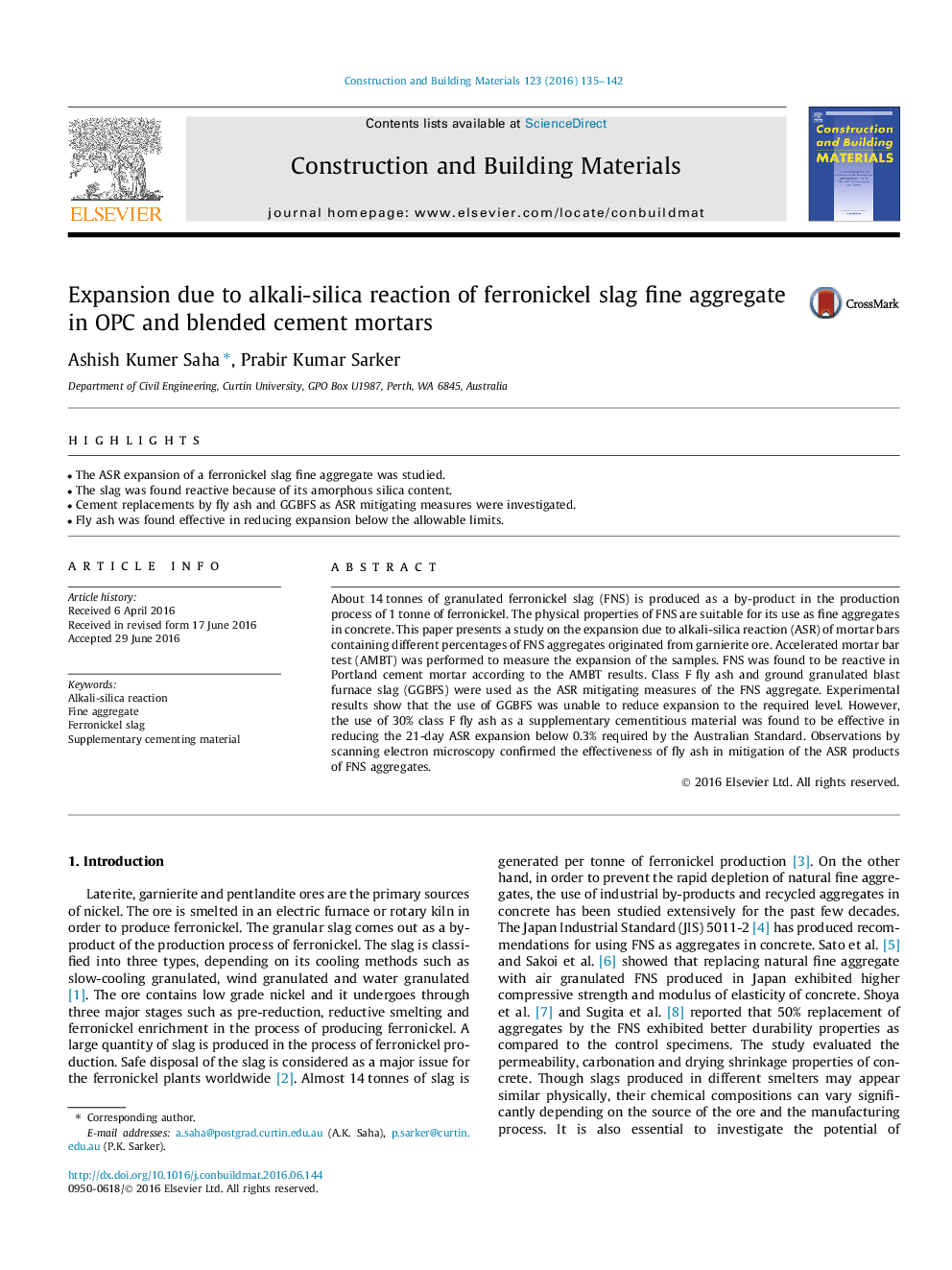| کد مقاله | کد نشریه | سال انتشار | مقاله انگلیسی | نسخه تمام متن |
|---|---|---|---|---|
| 255737 | 503530 | 2016 | 8 صفحه PDF | دانلود رایگان |

• The ASR expansion of a ferronickel slag fine aggregate was studied.
• The slag was found reactive because of its amorphous silica content.
• Cement replacements by fly ash and GGBFS as ASR mitigating measures were investigated.
• Fly ash was found effective in reducing expansion below the allowable limits.
About 14 tonnes of granulated ferronickel slag (FNS) is produced as a by-product in the production process of 1 tonne of ferronickel. The physical properties of FNS are suitable for its use as fine aggregates in concrete. This paper presents a study on the expansion due to alkali-silica reaction (ASR) of mortar bars containing different percentages of FNS aggregates originated from garnierite ore. Accelerated mortar bar test (AMBT) was performed to measure the expansion of the samples. FNS was found to be reactive in Portland cement mortar according to the AMBT results. Class F fly ash and ground granulated blast furnace slag (GGBFS) were used as the ASR mitigating measures of the FNS aggregate. Experimental results show that the use of GGBFS was unable to reduce expansion to the required level. However, the use of 30% class F fly ash as a supplementary cementitious material was found to be effective in reducing the 21-day ASR expansion below 0.3% required by the Australian Standard. Observations by scanning electron microscopy confirmed the effectiveness of fly ash in mitigation of the ASR products of FNS aggregates.
Journal: Construction and Building Materials - Volume 123, 1 October 2016, Pages 135–142